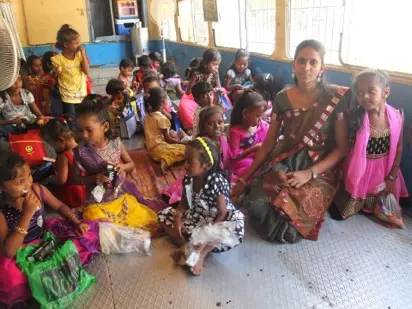
Social and Employment
Place
Mumbai, India
Sponsor
Frédéric Noël
Grant(s)
18 500 € to the Selection Committee at 2009/09/29
Project leader
"I'm personally acquainted with the president of the association and her remarkable action in the field. I have personally backed a project, which produces concrete and spectacular results, and am therefore happy to sponsor the association's application to the Foundation, convinced that this is an exemplary instance of social and human development in a neighborhood of Mumbai where the population live with the barest necessities."
Frédéric Noël
India still has a vast number of slums, especially in Mumbai. The association "Un Toit pour Bombay" was created in 2007, after the Indian government decided to clear the slum of Jamrushi Nagar, while building alternative housing some 20 kilometers away.
This move entails the payment of 7000 rupees (150 euros) by the families.
The association started to help about forty of them to settle in these new (and very small) dwellings. Yet many families decided not to budge, and Colette Battistini, president of the association, decided to focus its efforts on the little girls who continue to live in a very difficult situation.
In the slum, the families generally earn just enough money to have one meal a day, but cannot afford to pay the costs of schooling or healthcare. Besides, the little girls often have to remain at home to babysit their siblings when the mothers go off to work.
Food, education and health thanks to a day shelter
Following the signature of a partnership with a highly respected NGO in India, Navnirman Samaj Vikas Kendra, the project of a day shelter began to take shape.
At the start, the association wanted to start a boarding school, but a survey of the families showed that they wanted their children to return home every evening.
About fifty girls, aged 6 to 15, will therefore be welcomed from 7 am to 6 pm. A room has already been found, but a great deal of work still needs to be done for the shelter to be operational.
The foundation's support for these arrangements will enable the shelter to perform its function as of late 2009. The girls will attend school either in the morning or the afternoon. The rest of the time, they will therefore be staffed by unpaid volunteers.
The program includes a meal (or maybe two), washing facilities and tutoring.
While this framework may seem quite natural, it's going to change everything for these children.

